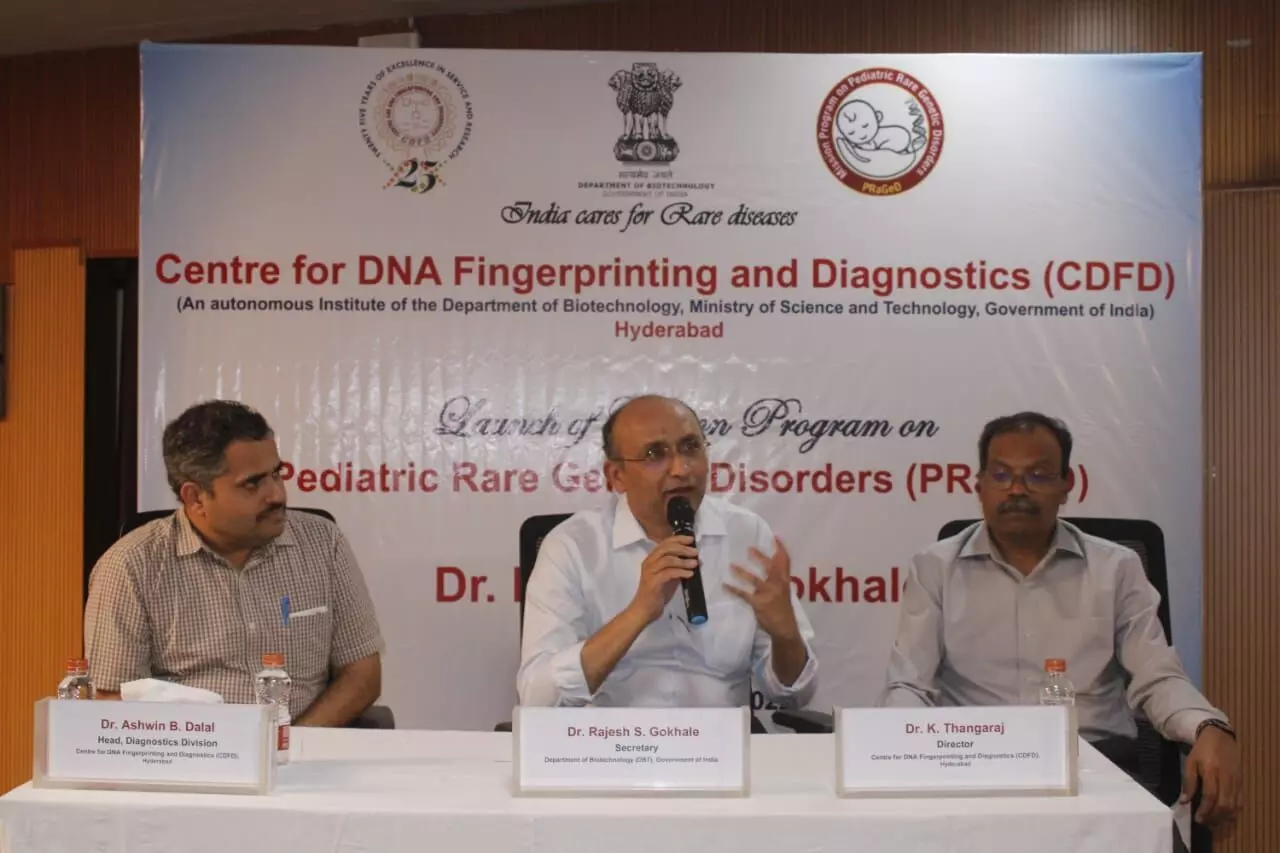Central project to study pediatric rare genetic illnesses launched in Hyd
PRaGeD is a pan-India initiative funded by the department of biotechnology, ministry of science and technology, government of India.
By Newsmeter Network
Hyderabad: An interdisciplinary approach to decode the genetic mutations that cause Pediatric Rare Genetic Disorders (PRaGeD) was launched by Dr. Rajesh Gokhale, the secretary of the Central government's department of biotechnology (DBT), on 1 November at the Centre for DNA Fingerprinting and Diagnostics (CDFD) here.
PRaGeD is a pan-India initiative funded by the department of biotechnology, ministry of science and technology, government of India.
Dr. K. Thangaraj, the director of CDFD, said, "One of the programme's highlights is creating a genetic database for rare genetic disorders in India. Data obtained from this project would be uploaded into the database for immediate reference for other researchers, patients, and their families."
The study will look into 5,600 families over five years to determine the genetic origin of undetected pediatric rare genetic illnesses. Once the genetic mutation in these children has been identified, scientists will research animal and cell models to determine how the genetic mutations are causing the rare disease. The findings of these testing and genetic counseling will be sent to the patients/families.
PRaGeD also aims to create targeted gene therapies for some genetic illnesses, seeking to reduce India's rare disease treatment costs by developing novel and cost-effective diagnostic and screening methods.
Dr. Gokhale, speaking at the event, said, "Rare genetic diseases are a global public health concern, affecting 350 million people worldwide and about 70 million Indians."
He added, "CDFD is collaborating with the pediatrics departments of medical colleges, DBT-UMMID centres, and 15 centres across India to analyse samples collected from children with rare genetic disorders and their parents."
Speaking about the diversity present in India, Dr. Thangaraj said, "With over 5,000 anthropologically well-defined groups, and many following strict endogamy, leads to a high prevalence of disease-causing mutations within the community/family. Additionally, 95% of rare diseases do not have a single FDA-approved drug for treatment."
Dr. Ashwin B. Dalal, head of the diagnostics division and the principal investigator of PRaGeD, added, "CDFD has a 27-year legacy as a genetic diagnostic referral centre that provides services for genetic testing and counselling to patients with rare genetic diseases. It has expanded through PraGeD to identify novel gene/mutation(s) and therapeutics for rare diseases."
Advanced SuperComputing facility inaugurated
Dr. Gokhale also inaugurated CDFD's 'Advanced SuperComputing facility' where rare genetic illnesses' data will be stored.
He said the facility's data would be shared with the Indian Biotechnology Data Centre (IBDC) and will be made available to researchers to better understand the mutation spectrum of rare genetic illnesses in Indian people.